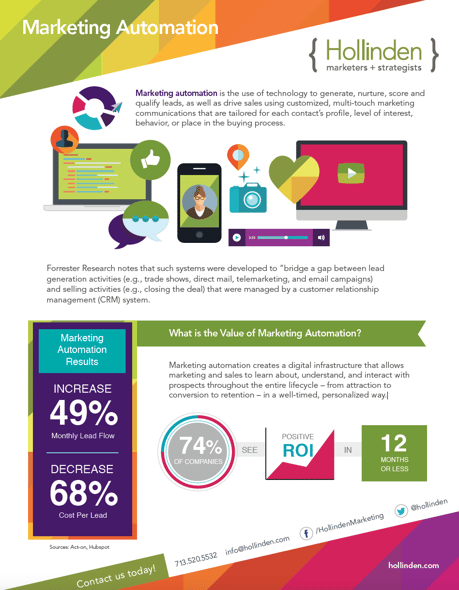
Forrester Research notes that marketing automation systems were developed to “bridge a gap between lead generation activities (e.g., trade shows, direct mail, telemarketing, and email campaigns) and selling activities (e.g., closing the deal) that were managed by a customer relationship management (CRM) system.
Marketing automation creates a digital infrastructure that allows marketing and sales to learn about, understand, and interact with prospects throughout the entire lifecycle – from attraction to conversion to retention – in a well-timed, personalized way.